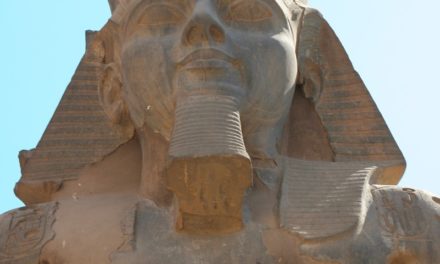And it happened after this there was again a battle with the Philistines at Gob.
Then Sibbechai the Hushathite killed Saph, who was of the sons of the giant. 2Sa 21:18
![]()
There is another type of advisor we are attracted to, the Coach. The Expert is just that, an expert. It is pretty much up to us as to how we shall integrate his counsel. But the Coach is a step closer. He is a hands-on teacher—right there with us, watching every move, commending us when we perform well and advising us how to do this better and why we do that. He is there at our first lesson and there when we graduate. Though we may highly respect the knowledge of the Experts, it’s the Coaches who we soon call by their first name. To us their word is gospel.
~~~~~~~~~~~~~~~~~~~~~~~~~
With the second giant that threatened the “light of Israel” no mention is made of weapons or armament, just the place of battle and his name. The omission of a weapon leads us to think that this giant was not to be feared for his destructive powers, but something else. What is there to be afraid of, if it will not kill?
This giant was also a champion of the Philistines. He, too, symbolized some aspect of worldliness, some characteristic of those who pit themselves against divine authority. Whatever he represents we can be certain his presence in the life will distract our relationship with God and our service for Him, bringing confusion, discord, disruption, and impotence. If the quality of life is important to us, besides life itself, then annihilating this leviathan is critical!
THE PLACE OF BATTLE
The battle, we are told, was at Gob (2Sam. 21:18-19), also called Gezer (l Chronicles 20:4)—a place in western Palestine, home territory to the tribe of Ephraim. But Ephraim did not drive out the Canaanites as God commanded. Instead, they kept the Canaanites as “servants”.
And they did not drive out the Canaanites who lived in Gezer. But the Canaanites live among the Ephraimites until this day, and serve under tribute. Joshua 16:10
Had they extricated them as directed this giant would not have been a threat, nor this battle necessary. There are many difficulties we face because of disobedience. It is a fearful thing to play with evil, to think we can control or harness it for personal advantage. King Saul thought he could by sparing Agag, the king of the Amalekites, as well as the best of the spoil, though ordered to destroy absolutely everything.
Saul and the army spared Agag and the best sheep and cows, the fattened animals, the lambs, and all the best property. The army refused to claim them for God by destroying them. But everything that was worthless and weak the army did claim for God and destroy. I Samuel 15:9
When Samuel asked Saul why he did not obey the Lord, Saul claimed he saved the best to use as an offering for the Lord. Apparently the king thought evil could be contained and its “benefits” used in the worship of God. This was a fatal mistake[1], costing him his position as king and possibly his soul.
Samuel said, “Which does the LORD prefer: obedience or offerings and sacrifices? It is better to obey him than to sacrifice the best sheep to him. Rebellion against him is as bad as witchcraft, and arrogance is as sinful as idolatry. Because you rejected the LORD’S command, he has rejected you as king.” I Samuel 15:22-3
We would do well to examine our own lives to see if we have compromised with evil, if we have kept back only the choicest parts of worldliness and sin. Perhaps in our business dealings we have taken advantage of others and used portions of our “profits” for mission work. God can bless a widow’s honest mite but not ill-gotten gain. Or maybe we try to justify a sharp tongue or believe an intemperate lifestyle has some merit. God help us!
If Ephraim had obeyed the Lord and driven out the Canaanites, would Saph have been a concern?
HIS NAME
The lack of weapon description is not the only indication we have of this giant’s purpose. We see it also in his name. Saph (or Sippai in I Chron. 20:4) has in its original sense the idea of containing, like a dish or bowl. We don’t want to offend such a nice and commanding individual. [Remember, the Ephraimites saw some “advantage” in keeping these Canaanites around as servants.]
But there is more to his name. We also find that the idea of containment is accompanied with a little parenthetical phrase, “as a limit”. And the root word means properly, “to snatch away”. The bowl Saph offers is a shallow one or the dish a small one. We are flattered that this important person is offering us a container for our food. But because it does not hold much we walk away, content with little, leaving the greater portion of God’s blessings to spoil behind us.
Saph is the Philistine champion we call THE COACH. What makes his work so hard to detect is that the whole economy of heaven and earth is laced and interlaced with limits of all kinds. Look over the list below and see if there are not limits, natural and otherwise, established for our good.
The Ten Commandments
Traffic laws
Budgets
Desserts
Lusts of the flesh
Time
Human strength
Jungle paths
Principles of health
Oceans, seas, and all bodies of water
So why make a big thing about Saph? Simply because there are times when God wants us to be free to think, create, express, and do, and the Coach thwarts God’s gracious purposes by his crafty reasonings and immutable laws. Observe how he works. Below are two perspectives of the same story.
While at a feast in Jesus’ honor, Mary, a very sensitive and devoted follower, out of great love for her Savior, has just anointed Jesus with a very costly (and aromatic) oil. Her act of devotion was severely criticized, however. In this first reference (Mark 14:3-8) it appears several guests at the feast were concerned, and thought such extravagance should be censored. The equivalent of a year’s wages could greatly benefit the worthy poor. Their logic appeared faultless. The sting of condemnation went straight to Mary’s heart, bringing confusion and embarrassment.
And being in Bethany in the house of Simon the leper, as He reclined, a woman came with an alabaster vial of pure, costly ointment of spikenard. And she broke the vial and poured it on His head. And some were indignant to themselves, and said, Why was this waste of the ointment made? For it might have been sold for more than three hundred denarii, and be given to the poor. And they were incensed with her.
John, on the other hand, tells the story from a slightly different perspective (John 12:3-7). He identifies the Coach-and it wasn’t a group of concerned disciples championing the cause of the poor!
Then Mary took a pound of ointment of pure spikenard, very costly, and anointed the feet of Jesus, and wiped His feet with her hair. And the house was filled with the odor of the ointment. Then said one of His disciples (Judas lscariot, Simon’s son, who was to betray Him) Why was this ointment not sold for three hundred denarii and given to the poor? He said this, not that he cared for the poor, but because he was a thief and held the moneybag and carried the things put in. Then Jesus said, Let her alone. She has kept this for the day of My burial.
Next to Jesus, Judas was the disciple all the others looked up to and trusted. He had education, prestige, influence. He knew how the world worked. And he had a way with words. But he had Saph’s heart!
Saph’s object is to rob us of an experience with God, and make us feel He is exacting and selfish and conniving. The Philistine’s shallow bowls are offered when God wishes us to have deep bowls and large plates. Just when the Lord wishes us to drink freely of His waters, venture much for His cause, enjoy the pleasures of His touch, or increase our capacities for service in His kingdom, Saph, the COACH, intrudes himself and smooth talks us into holding back, or tries to confine us by man-made laws.
An example of the latter is from a chapter in Esther’s life.
And Haman said unto king Ahasuerus, There is a certain people scattered abroad and dispersed among the people in all the provinces of thy kingdom; and their laws are diverse from all people; neither keep they the king’s laws: therefore it is not for the king’s profit to suffer them. If it please the king, let it be written that they may be destroyed: and I will pay ten thousand talents of silver to the hands of those that have the charge of the business, to bring it into the king’s treasuries. And the king took his ring from his hand, and gave it unto Haman the son of Hammedatha the Agagite, the Jews’ enemy. (Est 3:8-10)
Note that this was a Medo-Persian kingdom (Est. 1:3), the king was tricked into an agreement which he could not retract, and the bribe was in the form of SILVER. Now look at the king’s response when he learned of the deception and what he had to do to grant lovely Esther’s request.
And said, If it please the king, and if I have found favour in his sight, and the thing seem right before the king, and I be pleasing in his eyes, let it be written to reverse the letters devised by Haman the son of Hammedatha the Agagite, which he wrote to destroy the Jews which are in all the king’s provinces: for how can I endure to see the evil that shall come unto my people? or how can I endure to see the destruction of my kindred? Then the king Ahasuerus said unto Esther the queen and to Mordecai the Jew, Behold, I have given Esther the house of Haman, and him they have hanged upon the gallows, because he laid his hand upon the Jews. Write ye also for the Jews, as it liketh you, in the king’s name, and seal it with the king’s ring: for the writing which is written in the king’s name, and sealed with the king’s ring, may no man reverse. (Est 8:5)
Because the king could not reverse his edict (to destroy the Jews), he gave permission to write another edict to counteract the first one (that the Jews could defend themselves… with the king’s support).
Limiting may not destroy the Church of God, but it can definitely weaken her influence and delay her work if she falls for its schemes. God help us to be watchful and prayerful, as was Esther and Mordecai!
Worldly schemes, worldly policies, worldly methods all are directed at leadership to limit the effectiveness of God’s kingdom on this earth. It all sounds so good. Because we see no obvious weapon in Saph’s hand we assume he is harmless or friendly and do not raise a standard against him. And in the end God’s work and we suffer.
Listed below are a few of the ways Saph tries to restrict the kingdom of God besides legal enactments.
UNNECESSARY CAUTION
When Christ appeared to His disciples after the Resurrection Thomas was not in the midst. Their enthusiasm and excitement were dampened by Thomas’s caution. “Except I shall see in his hands the print of the nails, and put my finger into the print of the nails, and thrust my hand into his side, I will not believe.” (John 20:25) Thomas missed a great blessing and later received a chastisement from the Lord. “…blessed are they that have not seen, and yet have believed.” (ibid, verse 29)
EARTHLY TREASURES
In the early history of the New Testament Church needs were great and it was not uncommon for believers to sacrifice for the cause. There were two disciples, Ananias and Sapphira, who let earthly treasures limit their giving. It did not turn out good. You can read the story in Acts 5.
WITHDRAWING FROM THOSE WHO THINK DIFFERENTLY
The classic example here is how the Pharisees withdrew from their Messiah because He didn’t fit into their traditional expectations. “The officers answered, Never man spake like this man. Then answered them the Pharisees, Are ye also deceived? Have any of the rulers or of the Pharisees believed on him?” (John 7:46-48)
STINGY, MISERLY PEOPLE
God does not entrust His important work to those who think it more important to save money than to help those in need. They would grudge the smallest pittance to the needy in their distress. Their money would be more valuable to them than precious souls for whom Christ died. An extreme example is the farmer who thought only of himself, even in his abundance. (Luke 12:16-21)
IDLENESS
We are standing on the very threshold of eternity and we need to realize the claims God has upon us to do something, and do it now. If we fold our hands in idleness we give expression to a weak, unbelieving faith. The measure of our faith is proportional to our fervor. If we have a mind to work, and do so trusting in Jesus for help and wisdom, we shall see great things accomplished. “You lazy people can learn by watching an anthill. Ants don’t have leaders, but they store up food during harvest season. How long will you lie there doing nothing at all? When are you going to get up and stop sleeping? Sleep a little. Doze a little. Fold your hands and twiddle your thumbs. Suddenly, everything is gone, as though it had been taken by an armed robber.” (Pro 6:7-11 CEV)
UNWISE MOVES
Many a battle has been lost by unwise moves. Many a fortune has been forfeited by limited thinking. The work of God must move forward, and at some time with great speed and sacrifice. To always consider approaching the future with shallow bowls, with cautious, limited thinking could cause great loss to God’s cause, as well as an important family or business venture. A refreshing yet sad story is found in 1 Samuel 14, contrasting the limitless faith of a son and the limited fear of a father. I highly suggest you read it.
Brian Sauder, in his book, Prosperity with a Purpose, shares in the opening chapter an enlightening example of how the Coach can affect even our giving to missions. The book is a Christian’s perspective on prosperity, God’s first choice for His people. He explains how he thought restricting his family to eating just rice and beans for a month would allow them to give more for missions. His wife objected. These are his afterthoughts:
“I was not believing that God could supply more for us so that we could give more. In my thinking, we were limited to my paycheck. I looked at the income we had and saw that as a ceiling rather than believing God for more money. So I wanted to take food from my children’s mouths and give it to missions. What picture of God the Father does that give to my children? It shows them He is a stingy Father, who gives us just enough or barely enough to survive. As we will explore in this book, this is not a biblically accurate picture of God. I realized it was not right for me to show my children this tainted portrayal of God.” Prosperity With A Purpose, page 14.
The COACH has many ways to limit the work when God intends it to go forward. Our leaders are especially vulnerable, and it is up to us to help and encourage them, as Sibbechai did for king David.
SAPH’S COUNTERPART IN DANIEL 2
As we turn back to Daniel we will look at the second kingdom in Nebuchadnezzar’s giant image, the one represented by silver, the Medo/Persian empire. Here are some texts on this kingdom.
his breast and his arms of silver [the second kingdom]… (Dan 2:32)
And after thee [Babylon, the head of gold] shall arise another kingdom inferior to thee (Dan 2:39)
Thy kingdom is divided, and given to the Medes and Persians [the second kingdom identified]. (Dan 5:28)
The second kingdom in the giant image was represented by silver, an element inferior to gold as Medo-Persia was inferior to Babylon. Do we see any characteristics of Saph, the Coach, here? We certainly do! Besides the experience mentioned in Esther, we see another one early in Daniel 6. The presidents and princes of whom the king set Daniel above were jealous of this Jewish exile ruling over them. Knowing that Daniel faithfully and openly prayed to his God several times a day, they tricked the king to make a proclamation, as Haman did with King Ahasuarus.
Then said these men, We shall not find any occasion against this Daniel, except we find it against him concerning the law of his God. Then these presidents and princes assembled together to the king, and said thus unto him, King Darius, live for ever. All the presidents of the kingdom, the governors, and the princes, the counsellors, and the captains, have consulted together to establish a royal statute, and to make a firm decree, that whosoever shall ask a petition of any God or man for thirty days, save of thee, O king, he shall be cast into the den of lions. Now, O king, establish the decree, and sign the writing, that it be not changed, according to the law of the Medes and Persians, which altereth not. Wherefore king Darius signed the writing and the decree. (Dan 6:5-9)
It was the law of the Medes and Persians, the silver kingdom, that whatever was signed by the king could not be altered—even if he were tricked into signing it! Look how this played out in Daniel’s case.
Then these men assembled, and found Daniel praying and making supplication before his God. Then they came near, and spake before the king concerning the king’s decree; Hast thou not signed a decree, that every man that shall ask a petition of any God or man within thirty days, save of thee, O king, shall be cast into the den of lions? The king answered and said, The thing is true, according to the law of the Medes and Persians, which altereth not. Then answered they and said before the king, That Daniel, which is of the children of the captivity of Judah, regardeth not thee, O king, nor the decree that thou hast signed, but maketh his petition three times a day. Then the king, when he heard these words, was sore displeased with himself, and set his heart on Daniel to deliver him: and he laboured till the going down of the sun to deliver him. Then these men assembled unto the king, and said unto the king, Know, O king, that the law of the Medes and Persians is, That no decree nor statute which the king establisheth may be changed. Then the king commanded, and they brought Daniel, and cast him into the den of lions. (Dan 6:11-16)
The king realized he was bound by his own laws so much that, try as he might, he could not save his friend Daniel. He had to cast him into the den of lions. God, however, was not bound by these human enactments. He delivered His faithful son—much to the joy of the king.
Here we see how powerful the Coach can work to accomplish his aim (to constrain God’s work on this earth through His faithful followers). If he cannot kill, like his brother Ishbibenob, he will try to enslave by human enactments. Christians do not need to be overpowered by the Coach!
DAVID’S VULNERABILITY
David, though a man after God’s own heart, was overcome at times by human weakness. Whether his vulnerability came from pride, lust, or discouragement, it still affected his ability to fight. During these times he especially needed the support and help of his faithful soldiers.
Prior to Saph’s encounter with the mighty warrior of God, we read of an incident in David’s life that opened the door of vulnerability. It is recorded in I Chronicles 20:1. Note the two underlined sections.
And it happened after the year had ended, at the time kings go forth. Joab led out the power of the army and wasted the country of the sons of Amman. And he came and besieged Rabbah. But David staved (tarried) at Jerusalem. And Joab struck Rabbah and destroyed it.
When the king should have been with his forces he tarried in the capital city. When he should have been encouraging and leading his warriors, he allowed himself to be distracted. In 2 Samuel 11 we are told what he was doing when he should have been defending his country. The sin he got trapped in left him helpless and defenseless when Saph appeared.
And it happened at the turn of the year, at the time kings go forth, David sent Joab, and his servants with him, and all Israel. And they destroyed the sons of Amman and circled Rabbah. But David remained at Jerusalem. And it happened one evening, David arose from his bed and walked on the roof of the king’s house. And from the roof he saw a woman bathing. And the woman was very beautiful to look upon.
Our leaders are ever beset by temptations, for Satan knows that if he can get them to fall it will be easier for us to follow. It is during these times, when our supervisors, managers, pastors, or elders have, by disobedience, temporarily laid aside their armor that we need to come to their rescue. Instead of accusations, criticism and defamation we need to take up the battle ourselves and help them through it. Though David opened himself up to temptation, Sibbechai was there when the enemy came in like a flood. Who was this soldier, and what qualified him to do battle with the Coach, the champion of the Philistines and the silver kingdom?
SIBBECHAI, THE HUSHATHITE
His name in Hebrew means “copse-like”. The root from which this comes is interpreted as “to entwine:–fold together, wrap”. What is it he joins or weaves together? A copse is a thicket of small trees or shrubs. Trees have always represented people— the righteous (Psalm 1:3) and wicked (Psalm 37:35), kings (Daniel 4:20-23) and countrymen (Judges 9:8). A thicket of small trees, then, would be either a group of young people (“small” relating to age) or those who have not reached a prominent position in life (“small” relating to social stature). Sibbechai must have had a charisma to draw these special people together. He must have known how to entwine their petulant and restless spirits into a common good. But we know more about him.
He also was a Hushathite, those who were in haste, those eager with excitement or enjoyment. The group under his supervision, whether they be youth or “small” people, were not a sit-back group. Sebbechai was a leader with enthusiasm, animation, and exhilaration. And those he led likely would follow with the same. Wherever Sebbechai went anticipation was high.
We also understand from I Chronicles 27:11 that he was “of the Zarhites”. Zerah was of the tribe of Judah (Numbers 26:20). Zerah’s name signified “a rising of light”, “a shooting forth beams of light”. And to the Hebrew, light was ever a representation of God, His word, or His kingdom. This tribe represented energy big time! Judah, from whose bowels they all descended, adds the concept of praise and thanksgiving.
Sibbechi believed in God, whose truths were as lamps to his feet and light to his paths. His enthusiastic love for God and appreciation for all that God had done for him inspired his group. Wherever he went he cast no shadows. And Sibbechai loved “little” people. Though they were “small” (perhaps young in the faith, humble, insignificant in their own eyes), there was nothing they could not do with God’s help. Perhaps this was why his legion of 24,000 soldiers was given the eighth position among the twelve captains who rotated command one month out of the year at Jerusalem (1 Chronicles 27). The Hebrew word for 8 gives the idea of plumpness, as if a surplus above the “perfect” seven. In all this do you get any intimation of faithless limiting? This is the one who slew Saph.
David’s sin with Bathsheba had weakened the warrior for God— at least to the point that he could not fight the Coach. But the one God personally designed to do battle with him prevailed and came off victor. David was saved. Israel was saved. And God’s kingdom advanced.
Do you hear Saph’s sweet voice in your church planning committees, or missionary ventures, or evangelistic programs? Do you see the shallow bowl handed around for advancing God’s kingdom, or the tiny plate offered to collect funds for the needed church school? Do you sense THE COACH’s presence in your home or place of business holding you back from a faith-oriented life? It’s too costly, or ill-timed, or appears too legalistic, or the effort is better directed toward a more “acceptable” cause, he says.
Don’t think Saph’s lack of weapons makes him harmless! He is a powerful enemy and must be brought down without mercy. God’s kingdom is at stake! (There will be no Saphs in the Promised Land.) In the spirit of Sibbechai, with your eye on the Sun of Righteousness, your heart filled with thanksgiving, your soul fired with zeal for God’s kingdom, appeal to the “little ones”, those who are small in their own eyes but full of faith in Christ’s power to save, and together raise a standard against the Coach. To this, if you are obedient, the Coach is powerless to thwart your service or devotion to God, and you will not be distracted by the world’s glitter nor powerful laws.
[1] King Agag and all Amalekites hated God’s people and vowed to destroy them.
If you are ready for the next giant, here it is: LAHMI.






